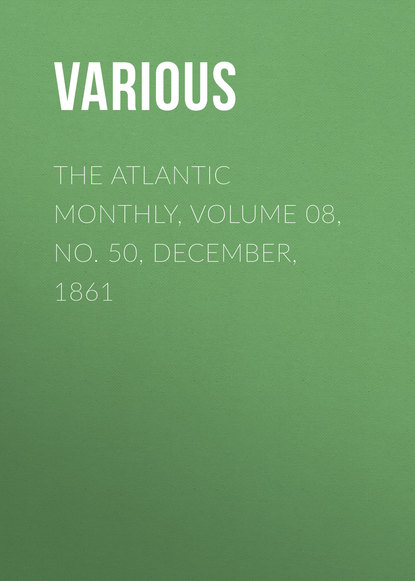По всем вопросам обращайтесь на: info@litportal.ru
(©) 2003-2024.
✖
The Atlantic Monthly, Volume 08, No. 50, December, 1861
Автор
Год написания книги
2018
Настройки чтения
Размер шрифта
Высота строк
Поля
To the little hamlet lying
White in its mountain-fold,
Asleep by the lake, and dreaming
A dream that is never told,—
And in the Red Hill's shadow
Your pilgrim home you make,
Where the chambers open to sunrise,
The mountains and the lake,—
If the pleasant picture wearies,
As the fairest sometimes will,
And the weight of the hills lies on you,
And the water is all too still,—
If in vain the peaks of Gunstock
Redden with sunrise fire,
And the sky and the purple mountains
And the sunset islands tire,—
If you turn from the in-door thrumming
And clatter of bowls without,
And the folly that goes on its travels
Bearing the city about,—
And the cares you left behind you
Come hunting along your track,
As Blue-Cap in German fable
Rode on the traveller's pack,—
Let me tell you a tender story
Of one who is now no more,
A tale to haunt like a spirit
The Winnipisauke shore,—
Of one who was brave and gentle,
And strong for manly strife,
Riding with cheering and music
Into the tourney of life.
Faltering and falling midway
In the Tempter's subtle snare,
The chains of an evil habit
He bowed himself to bear.
Over his fresh, young manhood
The bestial veil was flung,—
The curse of the wine of Circe,
The spell her weavers sung.
Yearly did hill- and lake-side
Their summer idyls frame;
Alone in his darkened dwelling,
He hid his face for shame.
The music of life's great marches
Sounded for him in vain;
The voices of human duty
Smote on his ear like pain.
In vain over island and water
The curtains of sunset swung;
In vain on the beautiful mountains
The pictures of God were hung.
The wretched years crept onward,
Each sadder than the last;
All the bloom of life fell from him,
All the freshness and greenness passed.
But deep in his heart forever
And unprofaned he kept
The love of his saintly Mother,
Who in the grave-yard slept.
His house had no pleasant pictures;
Its comfortless walls were bare;
But the riches of earth and ocean
Could not purchase his Mother's Chair,—
The old chair, quaintly carven,
With oaken arms outspread,
Whereby, in the long gone twilights,
His childish prayers were said.
For thence, in his lone night-watches,
By moon or starlight dim,
A face full of love and pity
And tenderness looked on him.
And oft, as the grieving presence
Sat in his mother's chair,
The groan of his self-upbraiding
Grew into wordless prayer.
At last, in the moonless midnight,
The summoning angel came,
Severe in his pity, touching
The house with fingers of flame.











